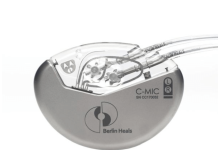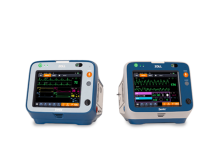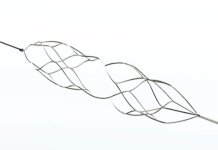AtHeart Medical today announced positive long- and short-term clinical outcomes for its reSept atrial septal defect (ASD) occluder.
Data from three patient cohorts showed positive efficacy and safety outcomes for the occluder, which features a bioresorbable, metal-free frame. AtHeart says it’s the first ASD occluder with this kind of frame. It designed the device to enable future transseptal treatment for patients who need transcatheter septal closure.
Related: BaroPace pacemaker algorithm meets both primary endpoints in heart failure trial
The occluder could address the limitations of current options, which have metallic frames that stay in a patient’s heart for life.
AtHeart plans to present data at CSI Frankfurt, including positive 10-year outcomes from the ASCENT ASD first-in-human trial. This data showed long-term efficacy and safety for the reSept device. Promising two-year data from a pivotal trial in the U.S., Canada, France and Switzerland, demonstrated complete closure in a case study.
Additionally, the company plans to share one-month efficacy data from patients with iatrogenic ASDs (iASDs), caused by mitral valve intervention, from its Canadian first-ever experience.
To date, AtHeart reports around 100 patients with ASDs treated as part of its reSept trials. Investigators believe the device could make transcatheter ASD closure even less invasive long-term.
“Around 100 patients have been implanted with reSept to date,” AtHeart CEO Laurent Grandidier said in a news release. “While hospitals continue to enroll patients as part of ASCENT ASD in several countries, we are excited that these positive outcomes showcase the potential for reSept to soon be the new standard of care.”




